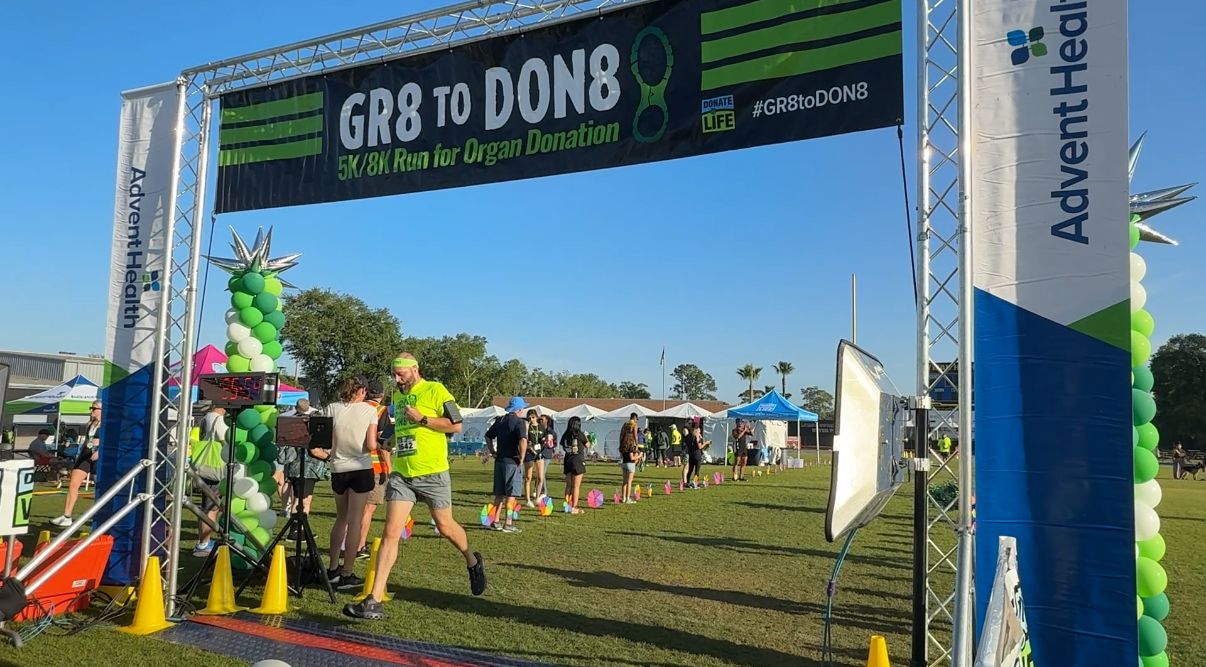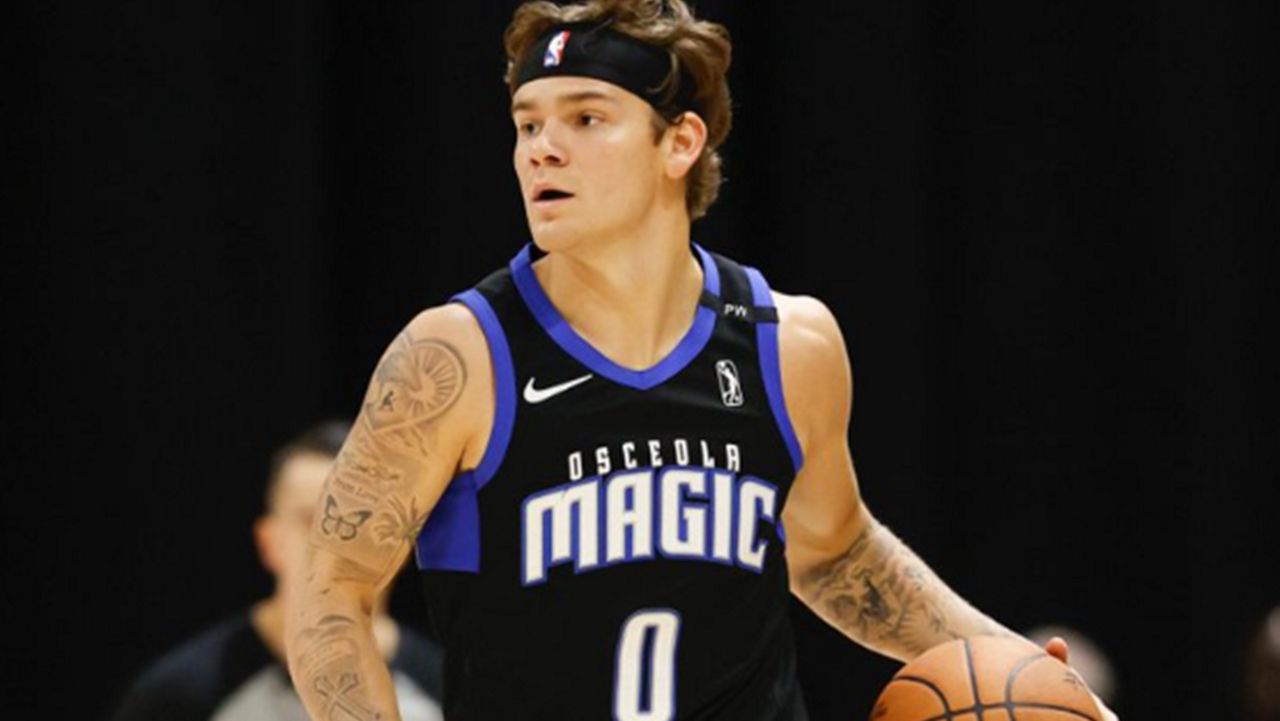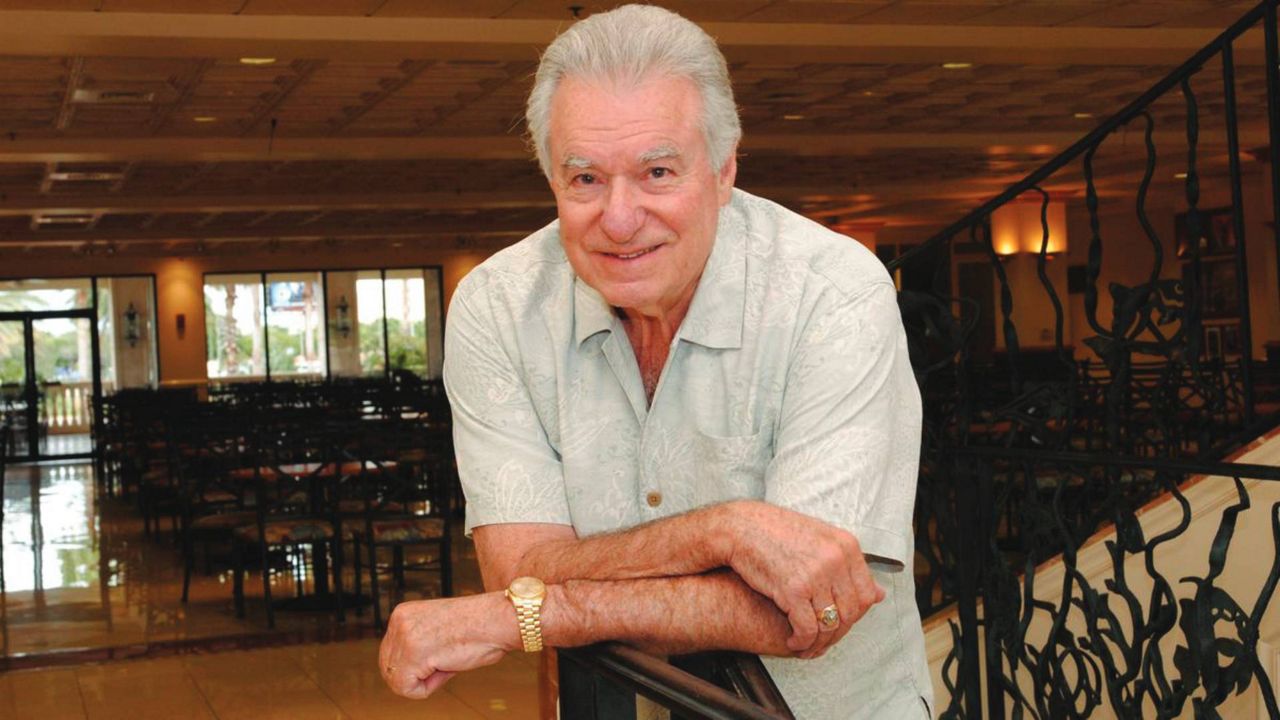WEST MELBOURNE, Fla. — Some people just never stop — they take on more and more with unrelenting optimism. And some do it while navigating a disability.
“I figure we only have so much time on this Earth, and you’ve got to make an impact while you can,” Diana Adams said. “I’m always on the go; I prefer it.”
Adams, who has cerebral palsy, cannot bend down and has lived a life of constant surgeries to rebuild her lower limbs.
Stubborn and driven, many days the West Melbourne woman said she tries to go without using her wheelchair, crutches or brace. But other days, she relies heavily upon a four-legged companion named Opus.
It’s a dog that the nonprofit Canine Companions matched her with several years ago — and since that time, the two have been inseparable. Opus fetches Adams’ shoes, tugs her wash basket to the laundry room. He even softly grabs his own leash to hand to her before they head out the door.
“He is much more than a family dog," she said. "I mean, the family loves him, but he’s changed my life. You see people that give up, and I didn’t ever want that to be me.”
Adams said that prior to matching with Opus, she was self-conscious and worried many people she encountered would be fixated upon her disability. Instead, the dog has opened doors to more comfortable conversations about cerebral palsy and the challenges of working with a disability.
Adams said it has helped her advocate for others with varied disabilities to find accommodations in order to work.
“When they do see us out in public, the number of people who have stopped us and wanted to know more about the organization, more about service dogs or ask questions about accessibility,” she said. “To me, that’s an opportunity.”
Since 1975, Canine Companions has been pairing dogs with those who are disabled and in need of assistance: children, adults and veterans, from those who are ambulatory to non-ambulatory.
Labradors and golden retrievers are born and bred in California for the program, then sent across the country to spend time with volunteer puppy raisers, before finding their way to training campuses like the Central Florida chapter’s 8-acre site, located along Clarcona Ocoee Road.
It’s where trainers like Sarah Crabtree teach dogs a myriad of useful skills, from flipping on light switches to opening refrigerator doors. Then, clients come to train and match with dogs, before taking one home — all for free.
“We have our dorm building, where our clients will live for that two-week period,” Crabtree said. “It’s a very humbling experience. You get to see the hard work you put in come to light.”
Right now, another team training is underway. Later this month, a new batch of clients will come to the campus to find their canine match, with a graduation ceremony several weeks later.
It was in 2017 when Adams first dived into the process of obtaining a service dog, filling out what she described as a “lengthy background” on herself. It delineated Adams’ exact wants and needs, how social she was and how active of a life she leads.
In the end, Adams recognized that the two-year process was purposeful, helping the nonprofit to better match her with her yellow Labrador.
And through the process, she gained confidence to try her hand at new ventures, like cooking, and dedicate her time to longtime passions, like nonprofit work. Adams is currently working on her doctoral dissertation, managing community engagement for a digital marketing firm she owns with her husband, and last year she ran for a seat on the West Melbourne City Council.
After knocking on thousands of doors, Adams won the seat.
“I realized you could sit in the audience another year or two, watch people make decisions, or step out of your comfort zone and get involved to serve your community and have a voice,” she said. “I knew it would be physically challenging to do this, but all the best things in life that are worthwhile, if you’re going to do them, they’re going to be hard. Isn’t that what makes it great?”









)